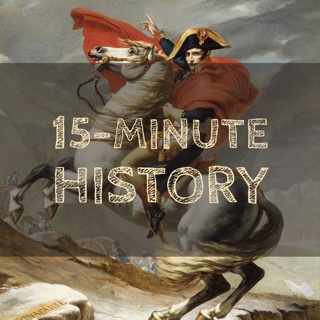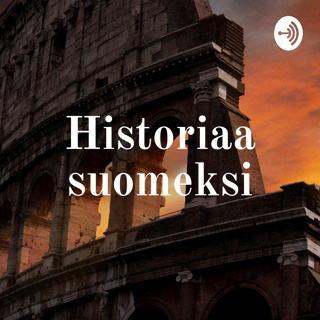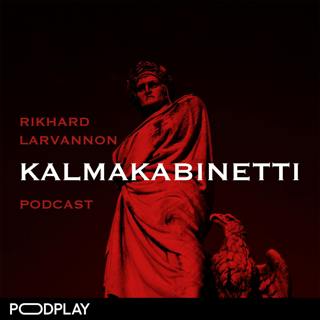
What If? | A Discussion on the Victory at Harbin
Join us as we discuss What If? | Victory at Harbin.
26 Heinä 202119min

What If? | A Lasting Peace at Tilsit
The raft floated in the midst of the River Niemen. On it were two beautiful pavilions, one for the Emperor of the French and the other for the Czar and Autocrat of All the Russias. In the French tent, Napoleon Bonaparte argued with his foreign minister, Charles-Maurice de Talleyrand, over how harsh the peace terms with the defeated Russians should be. Talleyrand, a servant of every revolutionary government since 1789, was a snake in silk stockings, but he knew foreign policy better than anyone else in the emperor’s entourage. He begged the emperor to treat Russia gently and put an end to fifteen years of war. But Napoleon, flush with the victory at Friedland earlier that year, was determined to humiliate Alexander I, and Talleyrand, ever the obedient servant in public, fell silent. What if Napoleon had heeded Talleyrand’s advice in 1807 and treated the Russians with more respect? What would our world look like today if history had taken a different course? In this series of bonus episodes on “15-Minute History,” Joe and I will be sharing some of our favorite “What If?” scenarios from this series with you. Building on the theme of Season Four, learning from history, we hope to provide some lessons on how individuals shape the destinies of large groups and entire nations.
12 Heinä 202110min

What If? | A Discussion on a Lasting Peace at Tilsit
Join us as we discuss, What if? | The Lasting Peace at Tilst.
12 Heinä 202118min

What We Left Behind | A Discussion on Season Four
Join us as we discuss Season Four of the 15-Minute History Podcast, ask each other questions we neglected throughout the season, and talk about Season Five and the bonus episodes you can expect during the break.
26 Huhti 202157min

The Nuremberg Trials | "Say I Slew Them Not"
Twenty-one men sat in the dock awaiting their fate. Once the leaders of Europe's mightiest nation who had strutted proudly across the world stage arrogantly proclaiming the supremacy of the Aryan race, their faces remained defiant as their empire lay in ruins outside. Some showed open contempt for the victors who now sat in judgment over them. Others sat quietly, their faces frozen and their eyes fixed forward. Some even looked surprised at having been charged with crimes against humanity, since they were "just following orders." Their leader, now dead, had commanded them to murder millions, and as good Germans, they had done just that. Now, with the world's most terrible war at an end, they would face justice. Join us as we teach you about the Nuremberg Trials, the monsters who faced justice, and the radicalism that corrupted an entire nation.
19 Huhti 202118min

The Nuremburg Trials | A Discussion on "Say I Slew Them Not"
Join us as we discuss the Nuremberg Trials, the monsters who faced justice, and the radicalism that corrupted an entire nation.
19 Huhti 202143min

Pointe du Hoc | Scaling the Impossible
The last landing was unique. It was a 100-foot cliff facing the English Channel, situated between Utah and Omaha beach. At the top of the cliff were 155mm guns with a range of 3.5 miles that could fire on both Utah and Omaha beaches and cause maximum casualties. The challenges facing these men were obvious, with the sheer rock face and no cover, and they would be easy targets for the Germans. In addition, the choppy sea and possible equipment and mechanical failures added to the dangers of combat. All factors, from combat conditions to topographical obstacles, made the objective almost impossible. The Germans believed that whatever the invasion would be, it couldn’t include Pointe Du Hoc. Join us as we teach you about the impossible landing at Pointe du Hoc, its role in Operation Overlord, and the story of the heroic Rangers who scaled and took the hill under direct enemy fire.
12 Huhti 202114min

Pointe du Hoc | A Discussion on Scaling the Impossible
Join us as we discuss the impossible landing at Pointe du Hoc, its role in Operation Overlord, and the story of the heroic Rangers who scaled and took the hill under direct enemy fire.
12 Huhti 202122min





















